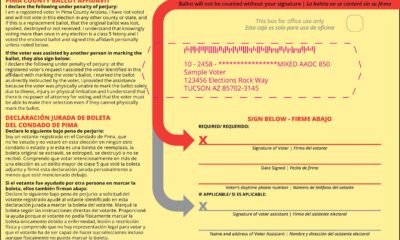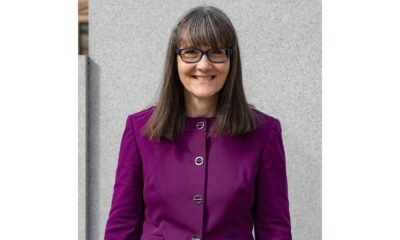Business
Revolutionizing Early Childhood: Funding Programs Through Non-Tobacco Product Taxes

A significant shift is occurring in the Arizona Legislature as discussions surrounding early childhood education and child care take center stage. For the first time in years, the focus on these vital topics resonates within its halls. Melinda Morrison Gulick, CEO of Arizona’s early childhood agency, First Things First, expresses hope that these initial discussions will evolve into robust bipartisan dialogues that lead to impactful policies benefiting young children and working families, ultimately benefiting Arizona’s economy.
The urgency for prioritizing early childhood education in Arizona has never been greater. Quality early childhood programs equip children with the skills necessary for kindergarten readiness, improving their academic performance, increasing high school graduation rates, and reducing future interactions with the criminal justice and social welfare systems.
A key initiative from Governor Katie Hobbs, known as Bright Futures AZ, aims to enhance the lives of Arizona families. It seeks to expand access to quality child care, stimulate private sector support, and bolster the workforce within the child care domain. With nearly half a million working families with children under age six, the financial burden of child care is substantial. The average annual cost for full-time infant care exceeds $10,000, emphasizing the crucial role quality early childhood education plays in stabilizing the state’s workforce and economy.
While First Things First plays a fundamental role in supporting quality child care across Arizona, challenges loom. The agency is currently grappling with a dramatic decline in tobacco revenue— a primary funding source. This yearly revenue plummet of nearly 40% is attributed to consumer transitions to vaping and alternative nicotine products, which were not considerations when voters established First Things First two decades ago.
In response, House Bill 2778 proposes a tax on vaping and alternative nicotine products. This measure aims to recoup lost tobacco revenues, in line with the original intent of Arizona voters, who prioritized early childhood investment. If passed, the tax could generate around $80 million annually, with 60% allocated to Arizona’s early childhood system and 40% directed to the state general fund.
Furthermore, House Bill 2939 aligns with Governor Hobbs’ Bright Futures AZ initiative. This bill creates programs designed to support child care for working families, including those with young children. The passage of these measures is deemed crucial, with overwhelming support evident during Early Childhood Day at the state Capitol on February 17, where hundreds of advocates engaged with lawmakers.
There is a consensus that investing early in children’s development yields significant benefits. The momentum builds as stakeholders encourage policy leaders to recognize the importance of these investments. Advocates are urged to contact their legislators to secure support for these pivotal bills, ensuring a strong foundation for Arizona’s future generations.
Melinda Morrison Gulick serves as the CEO of First Things First, Arizona’s dedicated early childhood agency.













![Members of the Arizona House of Representatives vote during a third reading of nearly three dozen bills at the Arizona State Capitol on March 4, 2025. [Monica D. Spencer]](https://arizonanews.org/wp-content/uploads/2025/06/SR-347-Secures-53M-in-Third-State-Budget-Draft-Awaiting-80x80.jpg)




